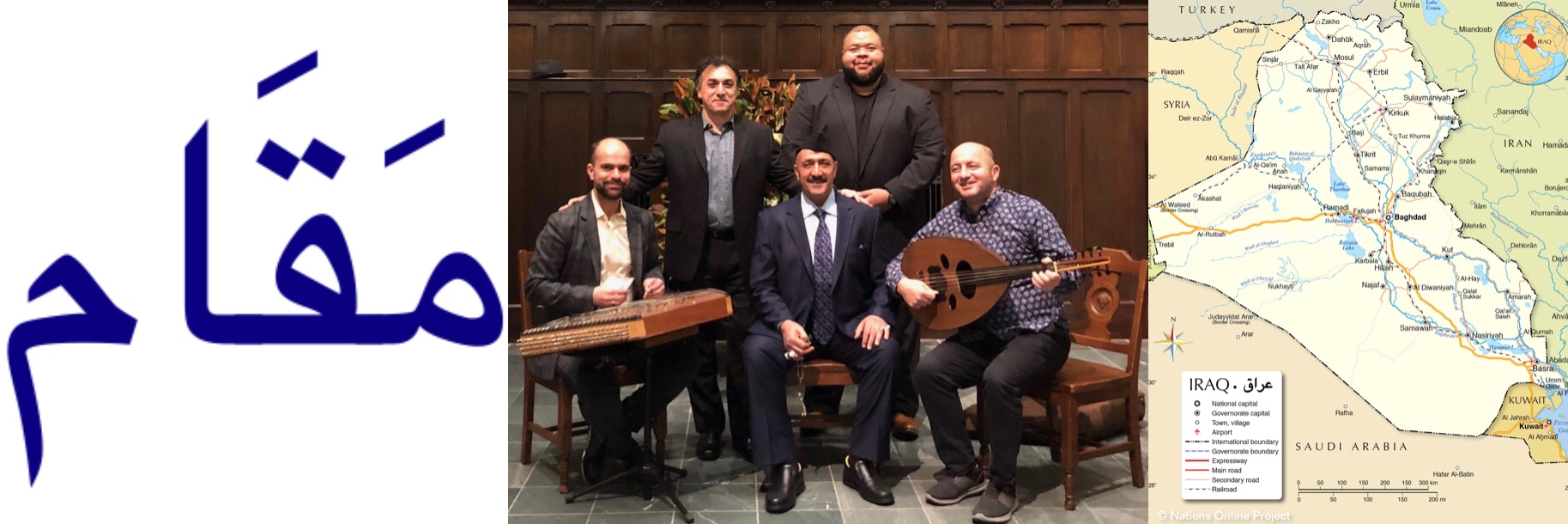“Hamid Al-Saadi & The Two Rivers Ensemble: Iraqi Maqam and Jazz,” Middle Eastern and North African Music Project, Fordham University, November 2019.
Hamid Al-Saadi
Through his powerful and highly ornamented voice, and in his comprehensive knowledge of the intricate details of the music and poetry of Iraq, generations and layers of the maqam tradition resonate through Hamid al-Saadi’s magnificent presence on stage. The only person in his generation to have memorized and mastered all 56 maqamat from the Baghdad repertoire, Al-Saadi is one of the few vocalists who is keeping the maqam alive today, at a time when so many elements of this profound tradition are in danger of extinction. Born in Iraq in 1958, Hamid Al-Saadi’s artistic, musical and scholarly journey with the Iraqi maqam began from childhood, inspired by his avid love of the Iraqi and Baghdadi culture, the Arabic language, music and poetry. He studied, practiced, and performed the maqam until he became one of the more renowned and highly acclaimed musicians and scholars in this subject. He learned the art of singing and performing the Iraqi maqam from the legendary Yusuf Omar (1918-1987), who pronounced Al-Saadi as his successor. Muhammed Al-Gubbenchi (1901-1989) who taught Omar and was probably the most influential maqam reciter in history, said that he considered Al-Saadi to be the “ideal link to pass on the maqam to future generations.” Al-Saadi immigrated to Great Britain in 1999, where he lived and was active for six years as a maqam scholar, singer, artist and writer, and authored a book on the maqam entitled,”al-maqam wo buhoor al-angham.” During this period, Amir ElSaffar met Hamid studied with him intensively over the course of several years, learning a majority of the Iraqi Maqam compositions. The Iraqi Maqam Inscribed in 2003 on UNESCO’s Representative List of the Intangible Cultural Heritage of Humanity, the Iraqi Maqam represents one of Iraq’s richest cultural offerings. The maqam has been developed and refined by generations of masters in the cities of Baghdad, Mosul, Kirkuk, and Basra as well as in rural areas, who passed this highly sophisticated tradition orally in coffeehouses, courts, and salons over the centuries. The maqam’s sophisticated melodies, infectious rhythms, and eloquent poetry, are a direct reflection of Iraq’s history, geography, culture, and folklore.
